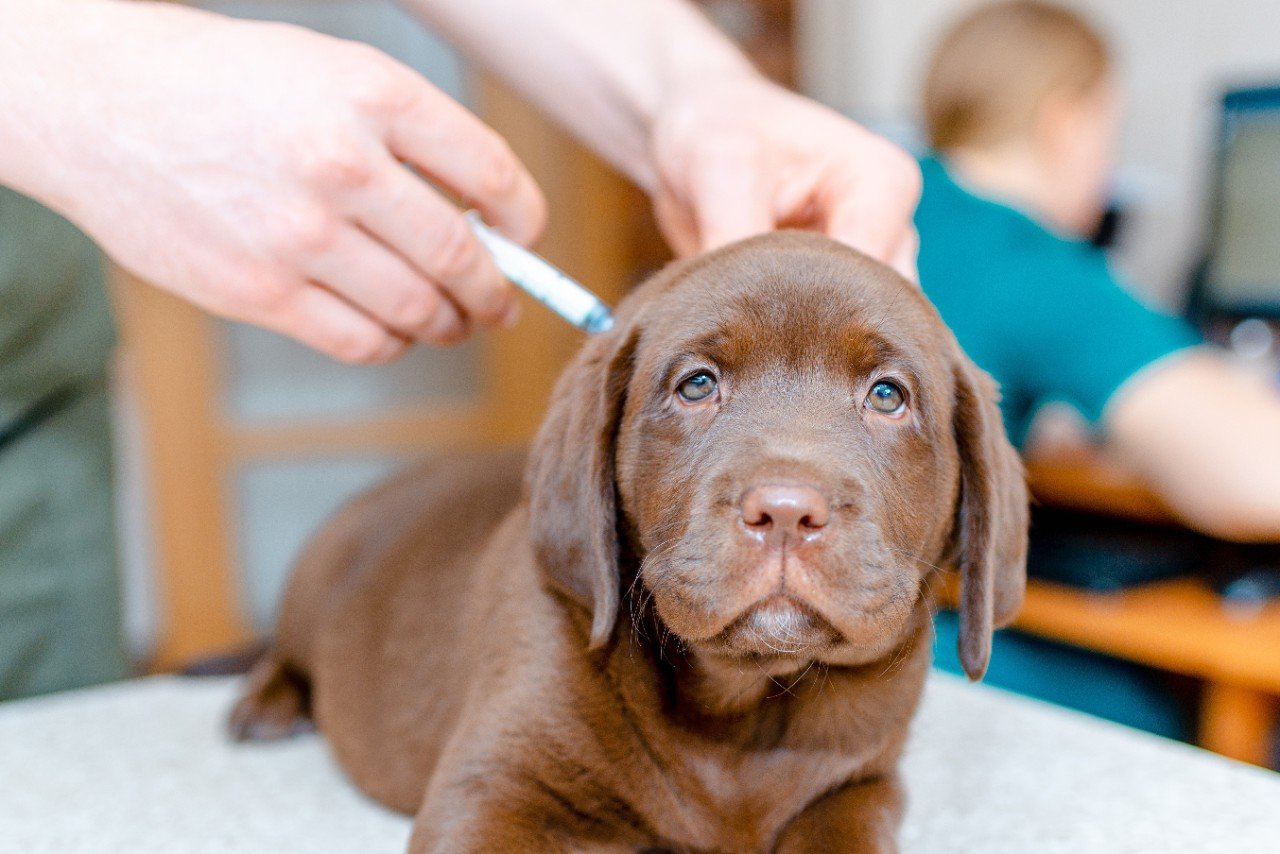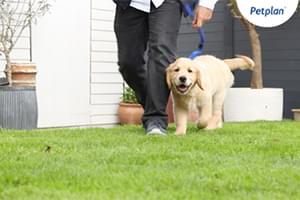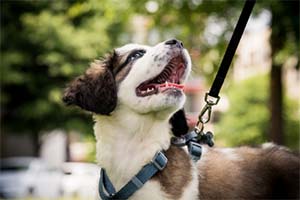Taking your pup for their first walk is a big moment for both dog and owner, so my first piece of advice is to take things steady, remain relaxed and keep a careful eye on your pup at all times.
There’s a lot for your pup to take in, so I always suggest keeping the first walk short – around five to ten minutes. This will prevent your pup from getting overwhelmed or anxious. Let your puppy set the pace and stop whenever he or she wants to.
If your puppy becomes scared, try not to comfort them too much. By doing so, you might make them think that there’s a good reason to be worried and thereby reinforce their anxiety. Instead, remain calm and move on. If your puppy becomes distressed then I’d recommend returning home for the day.

















